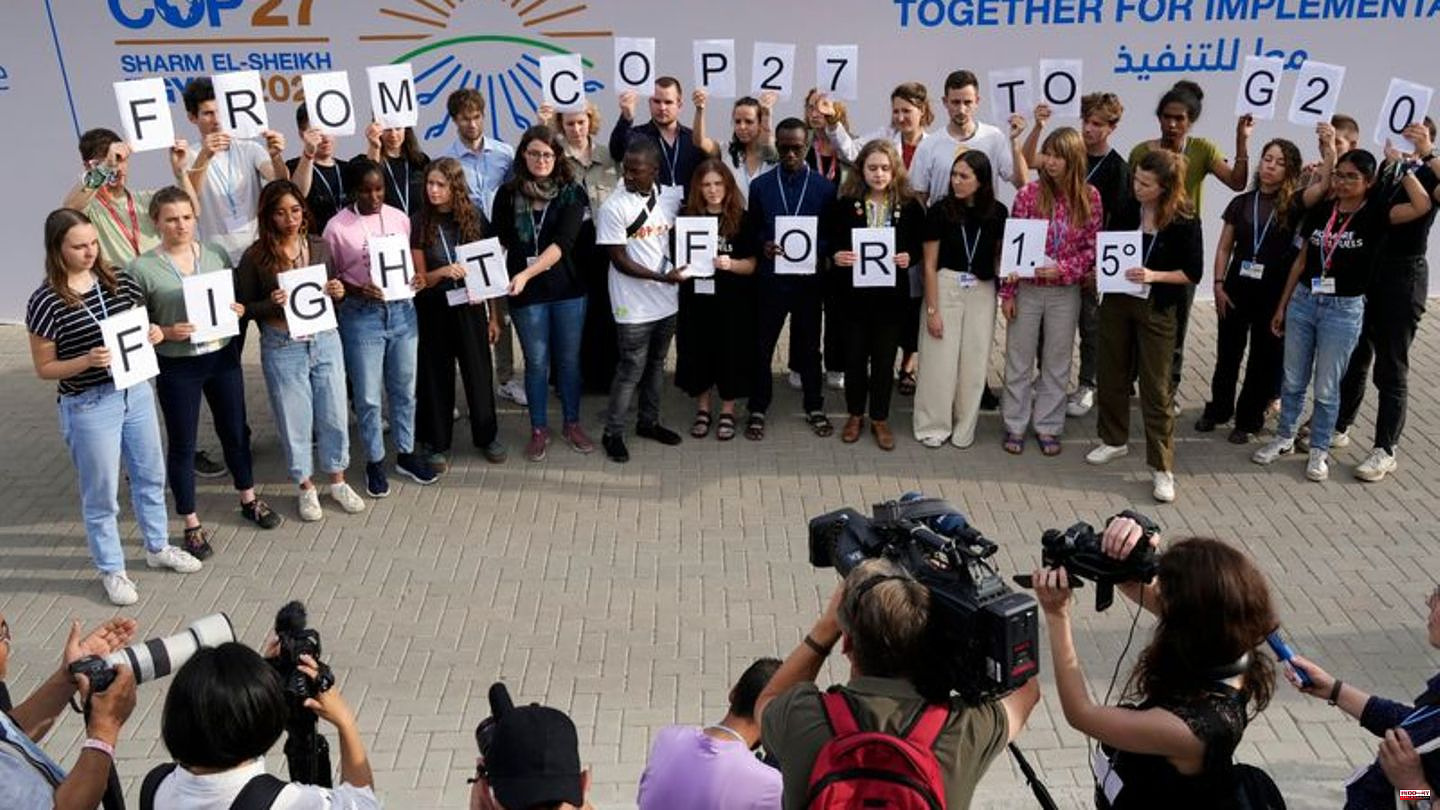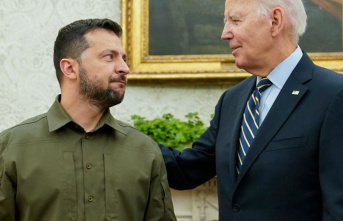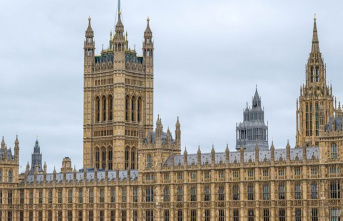At the start of the crucial second week of the world climate conference, the Egyptian hosts draw a sobering conclusion. The participating states have not yet made any progress on crucial issues, said conference president Samih Schukri in Sharm el-Sheikh. "We have to shift up a gear," appealed the Foreign Minister.
In order to ensure that the conference, which initially runs until Friday, ends properly, he expects that only "very few questions will remain unanswered" by Wednesday evening. The work should then be brought together on Thursday. "Time is not on our side and the world is looking at us," said Schukri. "Let's get to work."
The chairman of the Bund für Umwelt und Naturschutz Deutschland (BUND), Olaf Bandt, complained: "Instead of countering the climate crisis constructively and in solidarity, we are moving backwards and far too hesitantly affected by the climate crisis go home frustrated and helpless. This must not happen." At the conference, representatives from almost 200 countries want to agree on further joint steps against global warming.
Guterres for climate solidarity pact
On the Indonesian island of Bali, UN Secretary-General António Guterres urgently warned of global warming and called for a climate solidarity pact between rich industrialized nations and emerging countries. In a speech before the summit of the group of major economic powers (G20), he warned: "We are dangerously close to a turning point where climate chaos could become irreversible." If global warming goes beyond this limit, science teaches, "it poses an existential threat to all life on earth." But global emissions and temperatures continued to rise.
In the climate solidarity pact he proposes, rich countries and international financial institutions could provide financial and technological support and help emerging countries accelerate the transition to renewable energy.
How India wants to save greenhouse gases
India has presented a strategy for its goal of becoming climate neutral by 2070 - i.e. not emitting more greenhouse gases than can be bound again. India, the country with the second largest population in the world with more than 1.3 billion people, is one of the largest sources of climate-damaging emissions along with the USA and China. According to the strategy, the South Asian country wants to cause fewer climate-damaging emissions in electricity generation and transport systems, among other things. The Indian transport sector accounts for almost ten percent of emissions, it said.
Germany is falling behind in climate protection races
Germany has fallen slightly behind in the race for the best climate protection in the world. In the new climate protection index 2023, the Federal Republic is in 16th place - after 13th place in the previous year. The efforts of 59 countries and the EU were evaluated. The index was published by the environmental organizations Germanwatch and Climate Action Network as well as the NewClimate Institute. It records 92 percent of all climate-damaging greenhouse gas emissions. As in previous years, the first three places remain empty - because, according to the authors, no country is doing enough for climate protection to achieve a very good rating in all categories. Denmark tops the ranking for the second year in a row, followed by Sweden, Morocco, Chile, India, Estonia and Norway.
Protective shield against climate risks
The economically strong G7 countries, together with almost 60 particularly vulnerable countries, have launched a global protective shield against climate risks. Development Minister Svenja Schulze (SPD) said the aim was for help to be available quickly in the event of a crisis. However, more financial commitments from other countries are needed. According to the ministry, the first recipient countries include Bangladesh, Costa Rica, Fiji, Ghana, as well as Pakistan and Senegal.
Growing damage and concern for glaciers in Asia
In Asia, damage from weather-related disasters such as drought, floods and landslides is growing rapidly. The World Weather Organization (WMO) in Geneva estimates the economic damage for 2021 at 35.6 billion dollars (34.4 billion euros). Compared to the 2001-2020 average, economic damage from landslides has increased by 147 percent, drought by 63 percent and flooding by 23 percent. Studies show that such natural disasters have always existed, but that they are becoming more frequent and severe as a result of climate change.
The WMO is concerned about glacier retreat in the Himalayas and Tibetan Plateau, where the greatest volume of ice lies outside the polar regions. The glaciers would have lost a lot of mass due to the particularly warm and dry months of 2021. The meltwater provides drinking water for hundreds of millions of people in Asia.












